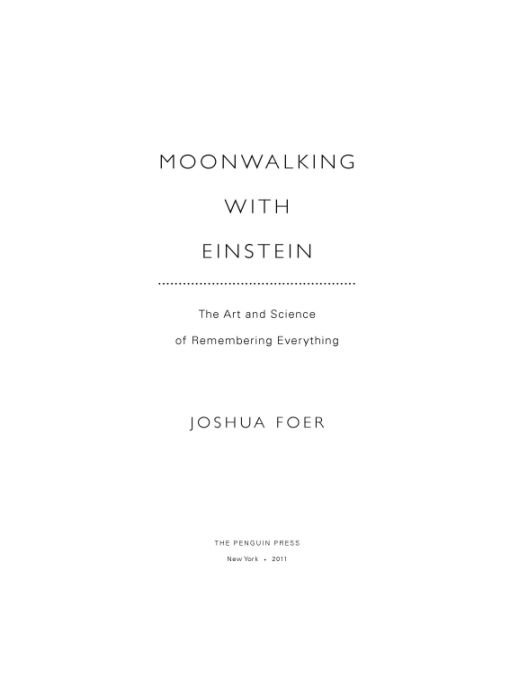
Moonwalking with Einstein
The Art and Science of Remembering Everything
هنر و علم به خاطر سپردن همه چیز
کتاب های مرتبط
- اطلاعات
- نقد و بررسی
- دیدگاه کاربران
نقد و بررسی

December 1, 2010
In his first book, freelance journalist Foer recounts his adventures in preparing for the U.S. Memory Championship, investigating both the nature of memory and why the act of memorization still matters.
For much of human history, remembering was the key to retaining accumulated knowledge and wisdom. The invention of printing sparked the development of "externalized memory," which has been greatly accelerated by computers and the Internet. We need no longer remember everything, but rather know where to find it, relegating memory experts to a "quirky subculture" comprised of individuals able to remember a list of 1,000 numbers, the exact order of two decks of playing cards and other feats. Foer began to investigate this subculture and then joined it as he trained for a year to compete among other "mental athletes." Mental athletes are neither geniuses nor savants, but they have mastered the art of translating what the brain is not good at remembering—words and numbers—into what it is good at remembering—space and images. They employ the 2,500-year-old mnemonic device of constructing "memory palaces"—imaginary buildings with distinct images throughout these spaces. For example, an image of President Clinton smoking a cigar on the couch might be the number three. It becomes, of course, quite complex, but Foer emphasizes that memorization is neither a gift nor a trick; it is hard work developing "a degree of attention and mindfulness normally lacking." The author is as concerned with what memory means as he is with learning how to memorize. He offers fascinating and accessible explorations into the workings of the brain and tells the story of a man who could forget nothing and of another man who could only remember his most immediate thought. If "experience is the sum of our memories and wisdom the sum of experience," writes the author, what does it mean that "we've supplanted our own natural memory with a vast superstructure of technological crutches"?
An original, entertaining exploration about how and why we remember.(COPYRIGHT (2010) KIRKUS REVIEWS/NIELSEN BUSINESS MEDIA, INC. ALL RIGHTS RESERVED.)

February 1, 2011
If you sometimes cant remember where you put your car keys or, like Foer, the car itself, dont panic. Youre not alone, and you can do something about it. In this intriguing look at the nature of memory, Foer reassures us that we dont need to acquire a better memory; we just need to use the one we have more effectively. Foer introduces us to people whose memories are both astonishing, like the man who could memorize 1,528 random digits in order, and frightening, such as a man with such an extreme case of amnesia that he doesnt know his own age and cant remember that he has a memory problem. He explores various ways in which we test our memories, such as the extensive training British cabbies must undergo. He also discusses ways we can train ourselves to have better memories, like the PAO system, in which, for example, every card in a deck is associated with an image of a specific person, action, or object. An engaging, informative, and for the forgetful, encouraging book.(Reprinted with permission of Booklist, copyright 2011, American Library Association.)

























دیدگاه کاربران